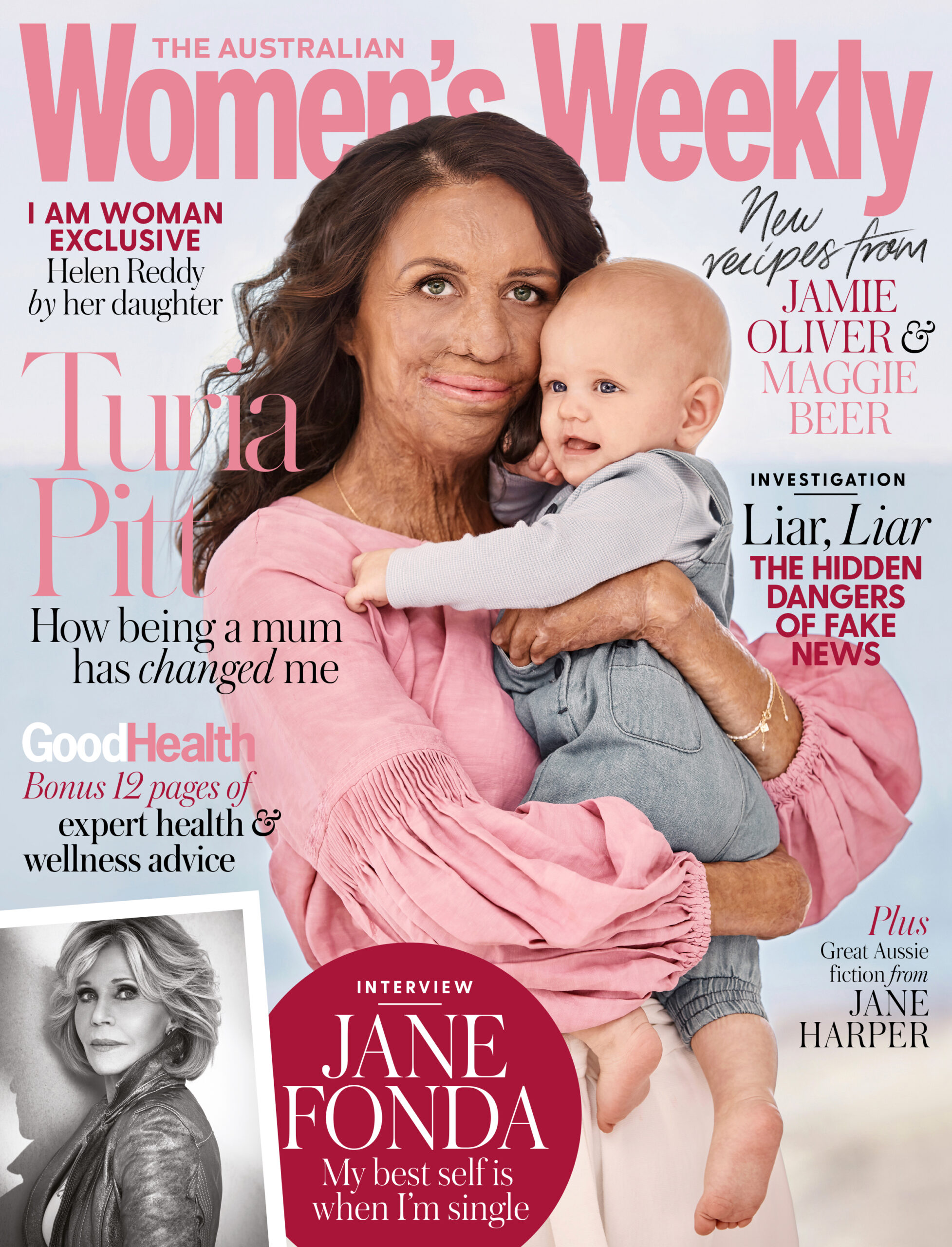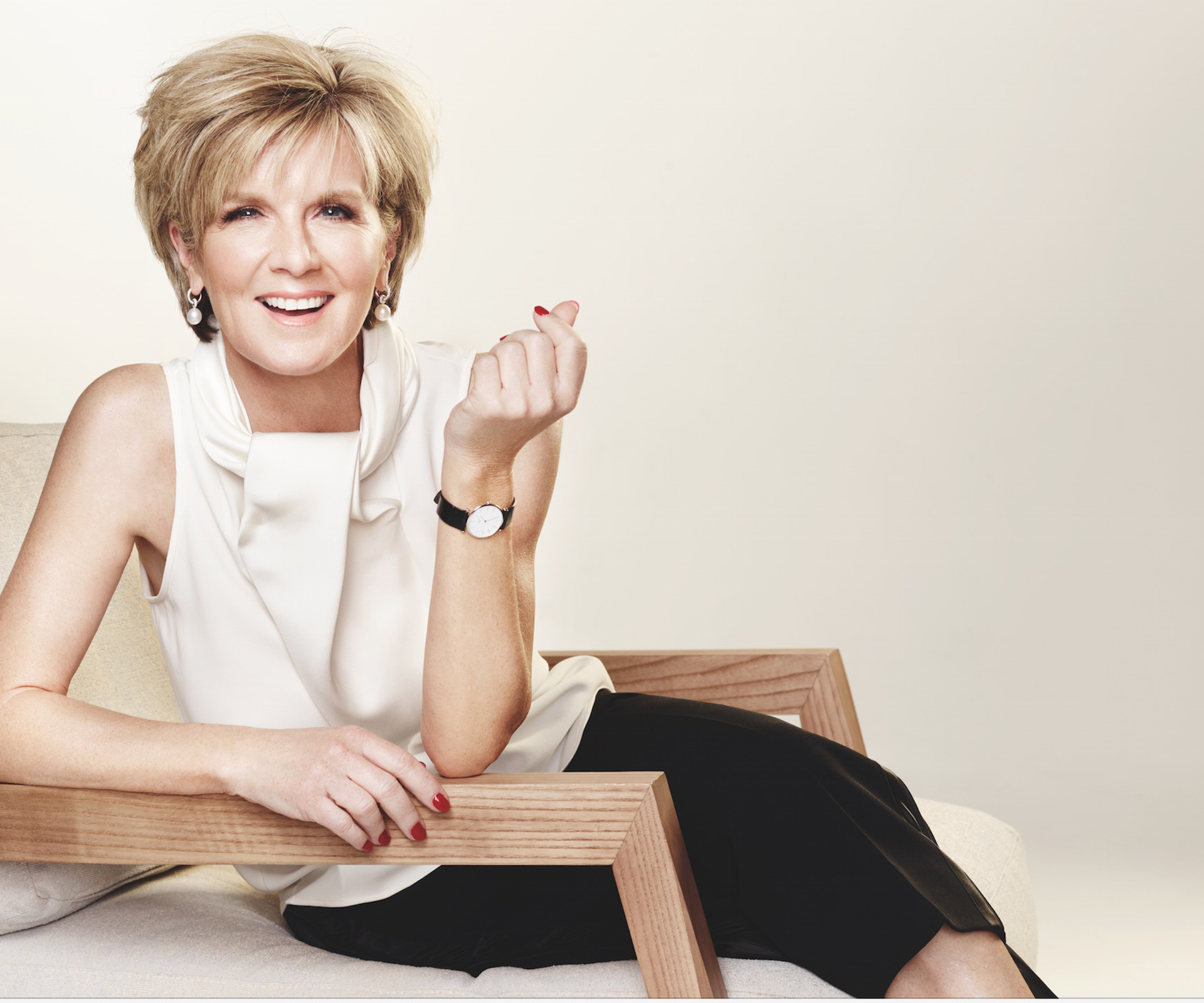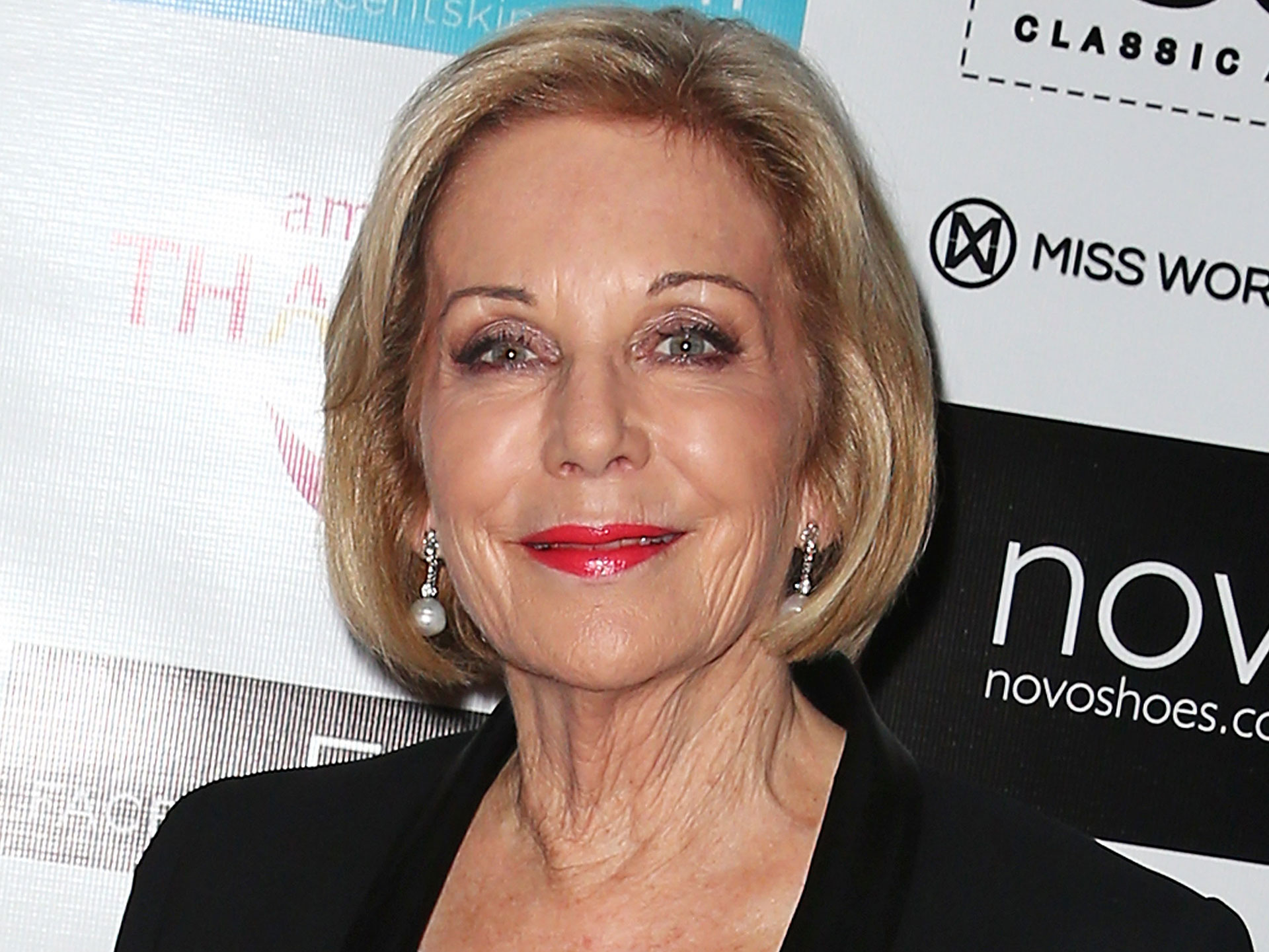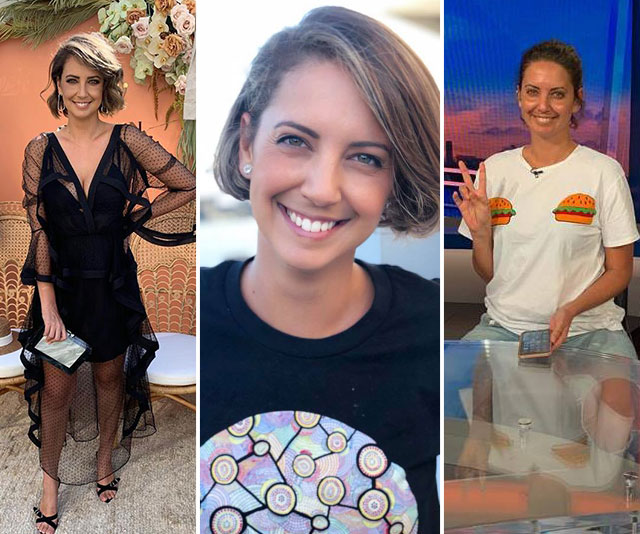The Australian Women’s Weekly Women of the Future Awards celebrate bold and innovative young women who are making a difference. The winner of this year’s competition, selected by our panel of judges, will take home over $72,000 in cash and prizes for their cause.
We asked our 2020 judges reflect on leadership in times of crisis and how women have shown them the way in their own lives.
To enter the 2020 Women of the Future Awards, click here.
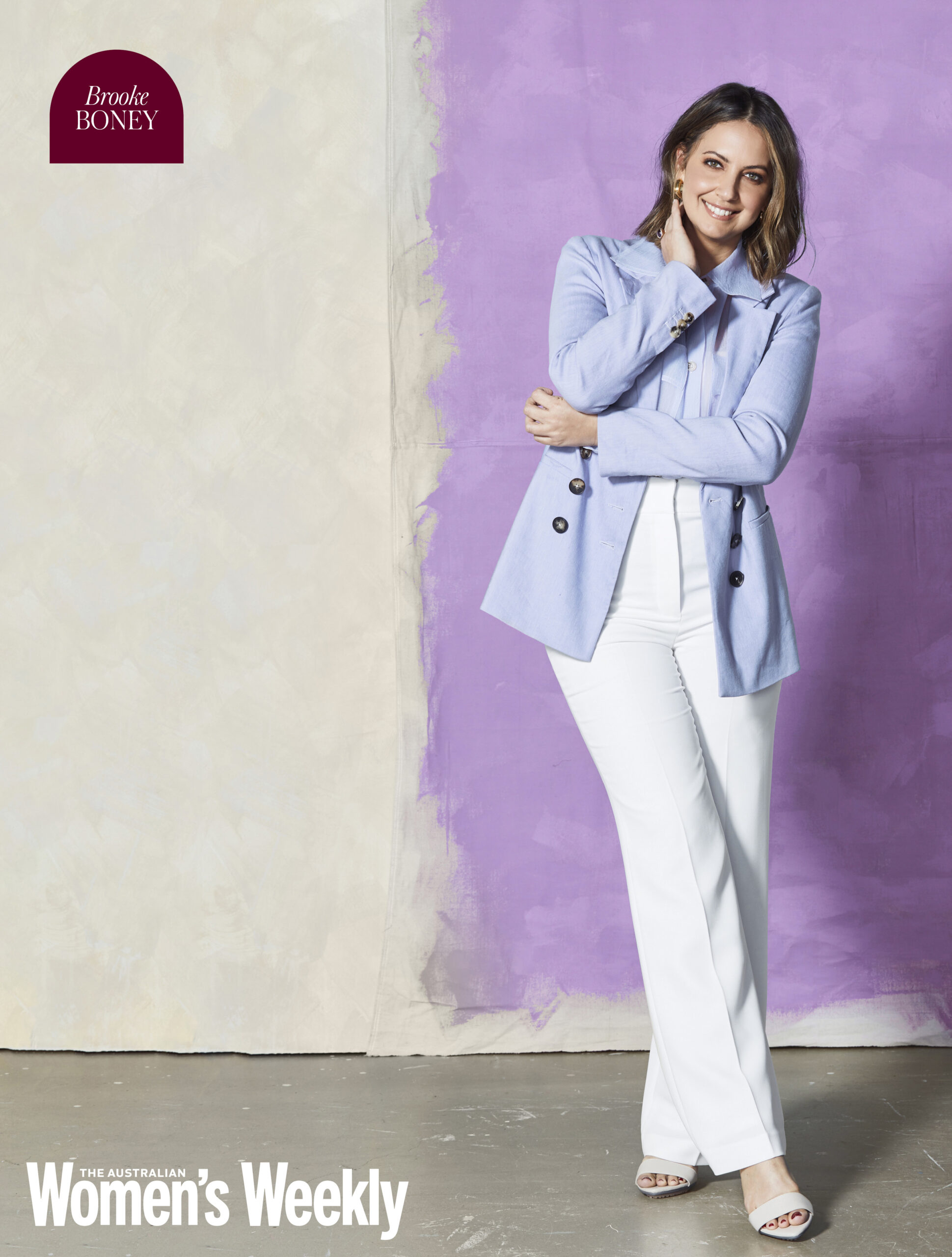
Today‘s Brooke Boney isn’t afraid to speak up for what is right and has proudly represented her Indigenous heritage throughout her career.
(Photography: Alana Landsberry. Styling: Jamela Ejjamai.)Brooke Boney, Entertainment reporter for Today, Channel Nine
As the high-profile entertainment reporter for the Nine Network’s Today, Brooke Boney is full of enviable stories about Hollywood premieres.
But she’ll just as quickly turn the conversation to examples of inspiring strength – political and otherwise – that she has admired this year. “Some of the best leadership we’ve seen around the world has been from female leaders,” she says.
“If there’s anything we can take from this, I hope that it is you don’t have to be the toughest, the loudest, the strongest to succeed and to win.”
Brooke’s background is in political journalism, on which she cut her teeth in Canberra for National Indigenous Television (NITV). She also produced Sydney’s Koori Radio morning program Blackchat before going to her university classes.
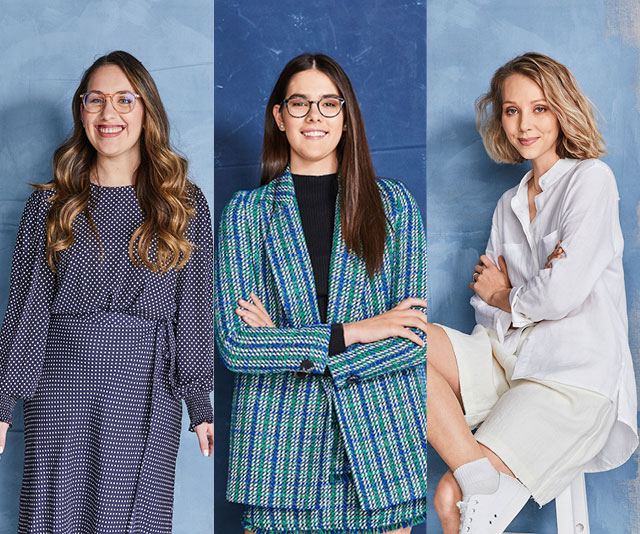
The 2019 Women of the Future winners were Madeleine Buchner, Macinley Butson, and Courtney Holm. Read about their incredible work here.
(Photography: Styling: Mattie Cronan.)She returned to radio in 2016, winning fans while presenting news bulletins for ABC radio’s triple j – which she opened with the greeting “Yaama”, which means hello in the indigenous language of northern NSW.
Brooke is a Gamilaroi Gomeroi woman, and says she is grateful to have been surrounded by incredible women in her working life – notably journalist-turned-senator Malarndirri McCarthy, who was at NITV with her.
“[Malarndirri] is the sort of woman who’s very strong and forthright, but also gentle and caring in the way she treats younger staff, in particular younger women,” says Brooke.
“I always really admired how she helped lift other women up and bring them with her. When I was younger I always thought, ‘That’s the woman I want to be’.”
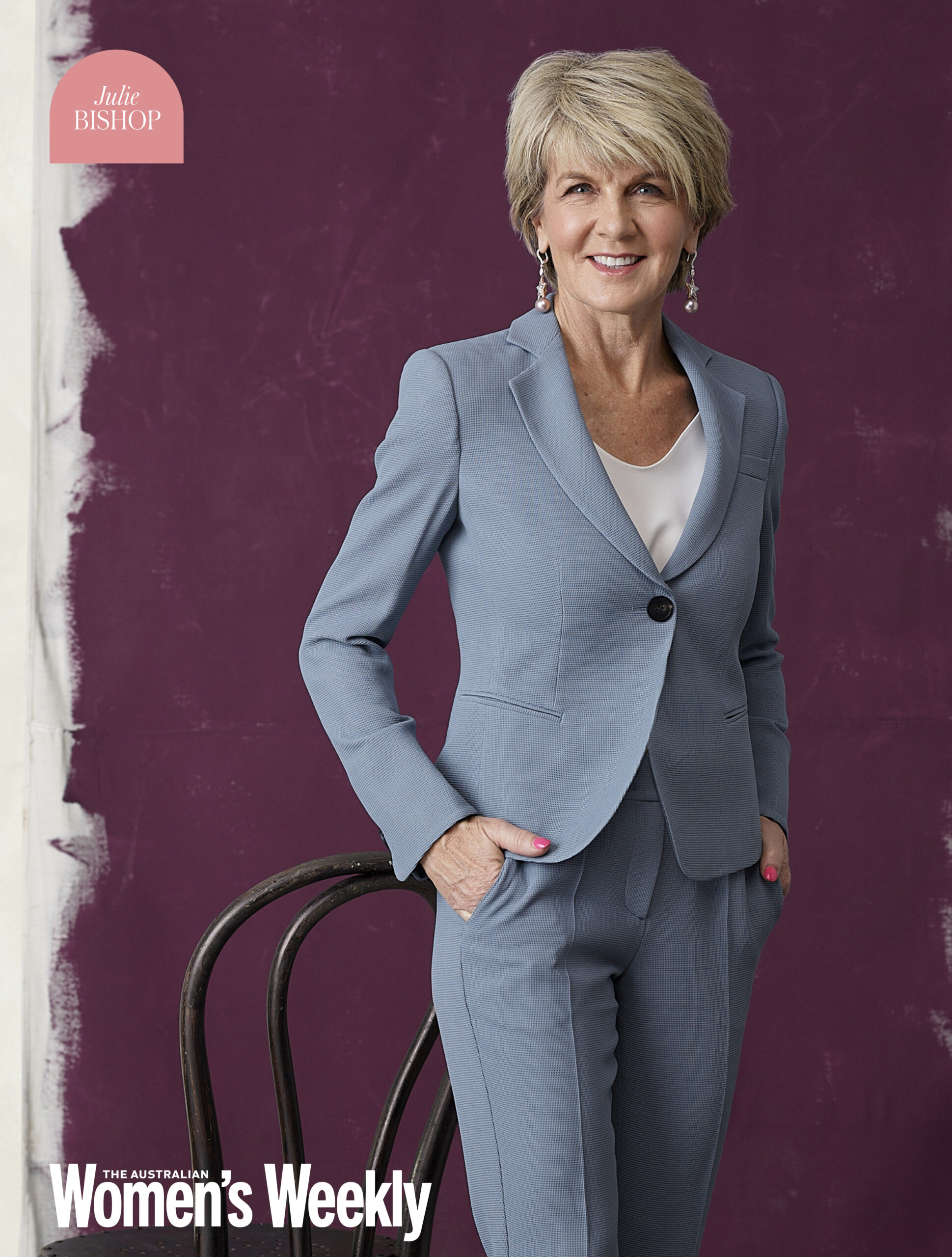
The Hon. Julie Bishop has made a name for herself all over the world, representing Australia as Foreign Minister. She represents the heights women can achieve despite what stands against them.
(Photography: Corrie Bond. Styling: Mattie Cronan)The Hon. Julie Bishop, Chancellor of the Australian National University and former Foreign minister of Australia and former deputy leader of the Liberal Party.
Since leaving the cut and thrust of Federal Parliament, Julie Bishop has taken on a new challenge as the first female chancellor of the Australian National University.
It’s the latest in a long line of firsts for the former Foreign Minister and deputy leader of the Liberal Party – she was the first woman to be both.
And as she reflects on the glass ceilings she’s broken through, Julie says she’s carried with her the lessons she learned while being mentored by trailblazer Dame Roma Mitchell.
WATCH BELOW: Judge Brooke Boney shares the advice she’d give her 12-year-old self. Article continues below.
“She taught me that I should have the courage to push boundaries,” Julie says of the woman who was the first female state Supreme Court judge and also the first female state governor.
“She was the first in so many roles without role models to follow. She clearly didn’t listen to those who said that she couldn’t do it. It was her example of not being confined by other people’s assumptions of what she should or shouldn’t do, and I learned a great deal from her.”
As she contemplates a world that’s changed in ways no one was prepared for, Julie is optimistic, having been encouraged by the bravery women have shown in their own communities and families, and on a broader level.
“The pandemic has broken down entrenched structures, and I think this is an opportunity for women to fill the void,” she says.
“I have been truly inspired by the nurses – particularly at the early stages of the pandemic, when we had little idea how transmission would work. I have been inspired and in awe.”
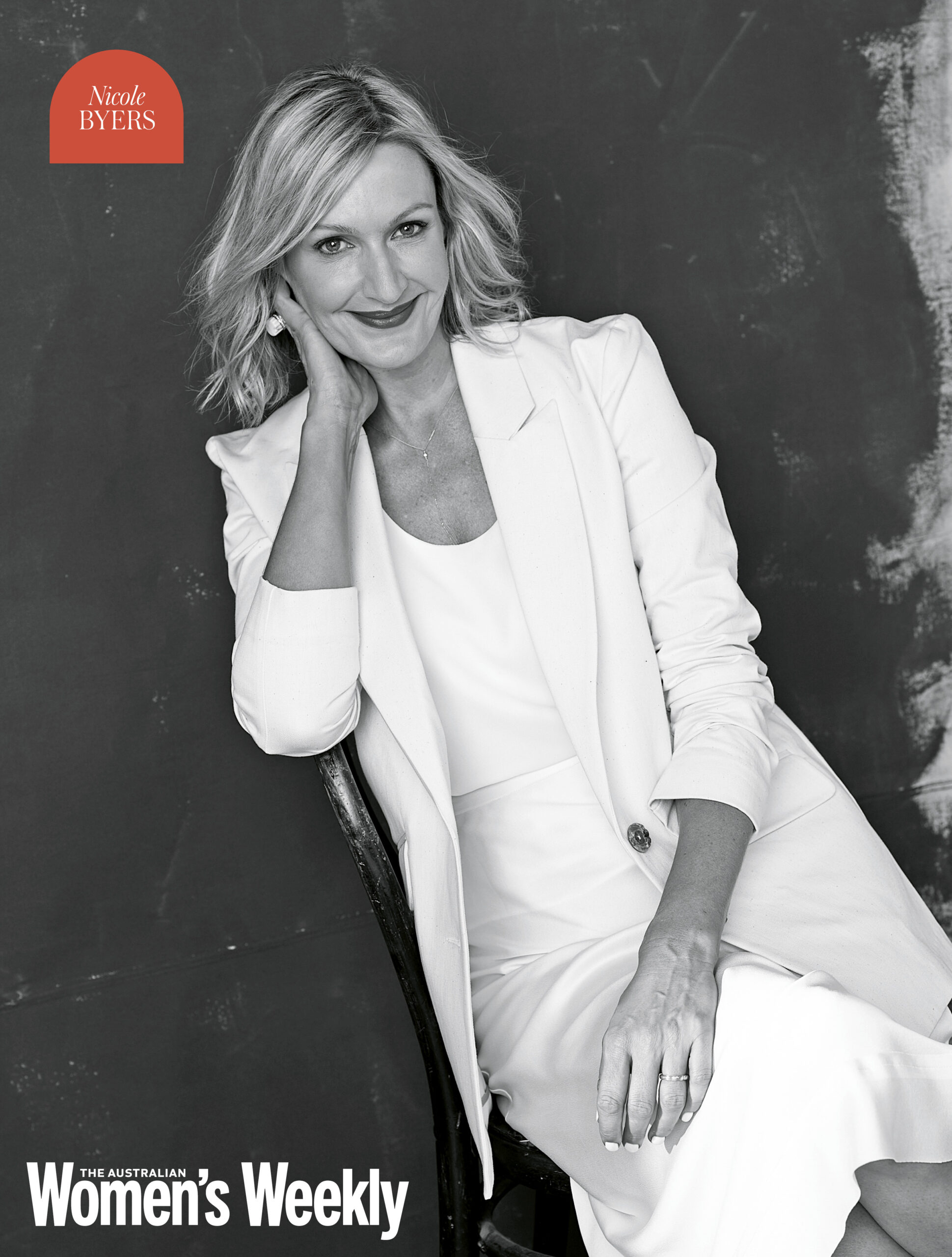
As editor of The Weekly, Nicole strives to tell the stories that Aussie women want to hear, and almost to share the great work of women who often go unsung.
(Photography: Corrie Bond. Styling: Mattie Cronan.)Nicole Byers, Editor-in Chief of The Australian Women’s Weekly
“It’s never more necessary to support innovation and change than in a time when so much is challenged and disrupted,” says Nicole.
As Editor-in-Chief of The Weekly, she has led the Women of the Future competition for the past three years and seen the breadth of potential within the emerging generation of female change-makers. In a world that has been turned on its head, she is excited to see what bright innovations this year’s event might unleash.
“Any situation or disruption like we’ve had in the last year creates opportunities as well as hardships,” Nicole says. “People are more open to looking at different ways of doing things, which creates opportunities for young change-makers to step in and show us the way.”
Having started her career at a newspaper where the leadership ranks were filled with men, Nicole says she didn’t see many leaders she felt she could emulate.
But this has changed in a very short period of time. “Now women are allowed to be all different types of leaders, including more sensitive and empathetic ones.”
Nicole tells us that one of the wonderful things about this campaign is hearing the various pathways her fellow judges and panellists took to finding success.
“They talk about facing self-doubt and overcoming it, or learning that it is simply a part of our entire suite of emotions. Being vulnerable and admitting self-doubt is a generous thing to do because it encourages other people to realise it’s not a barrier to success unless you let it be.”
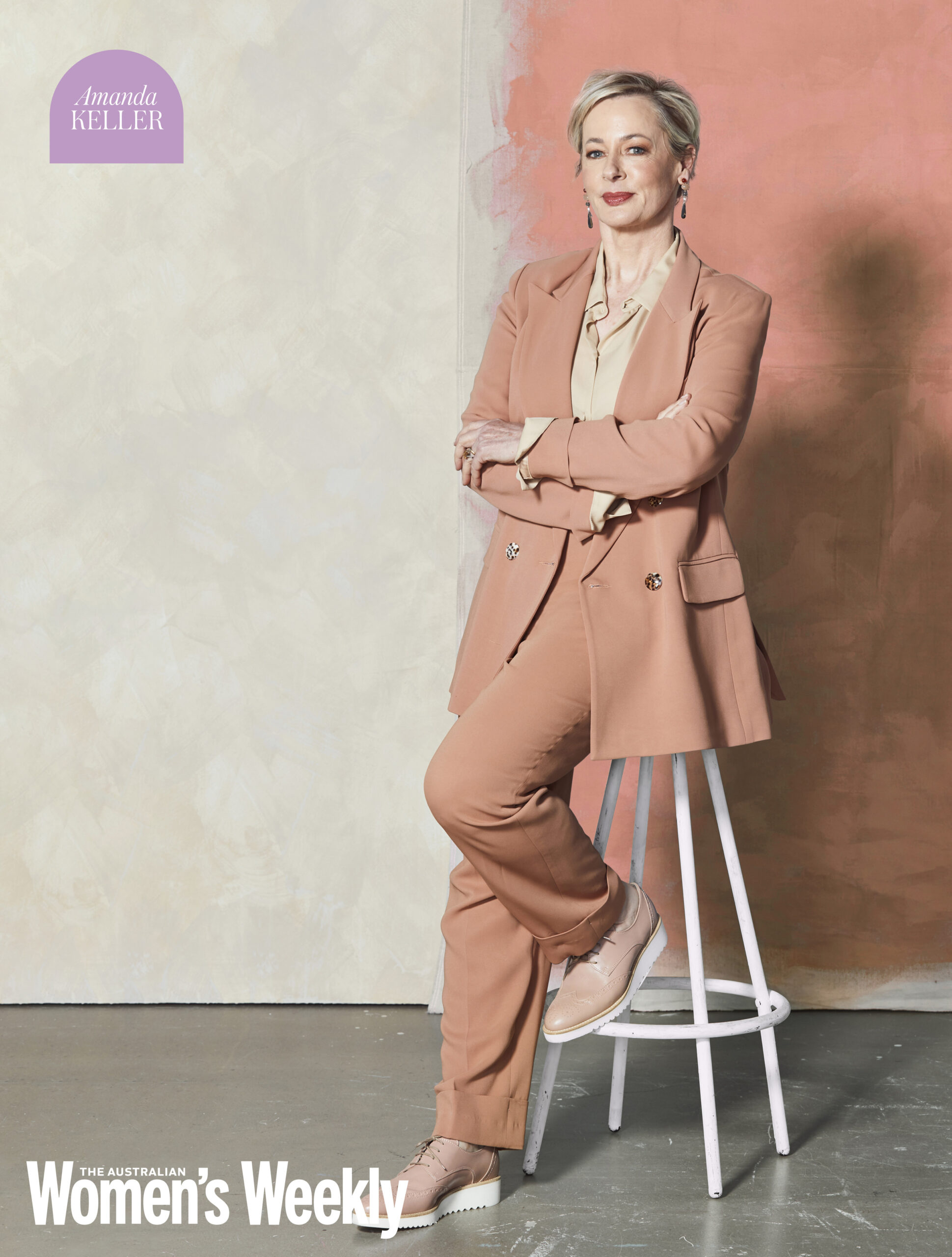
Amanda Keller OAM is a mainstay of Aussie radio and television, and often uses her platform to champion good causes. She is also the patron of The Sydney Kids Committee, which raises funds for the Sydney Children’s Hospital.
(Photography: Alana Landsberry. Styling: Jamela Ejjamai.)Amanda Keller, co-host of WSFM’s Jonesy & Amanda and co-host of The Living Room on Network 10
Growing up, broadcaster Amanda Keller was surrounded by women who inspired her to achieve, from a high-school teacher who treated her pupils like adults and inspired a joy of learning, to an aunt who defied convention and showed her possibilities beyond her youthful expectations.
“Just seeing someone live a different life was very inspiring to me,” Amanda says.
Amanda’s aunt was 10 years younger than her mother, but while her mum left school at 16 and then had to give up her job at a bank when she got married, Amanda’s aunt got three degrees and travelled across the United States in a Kombi van.
“There was a giant difference in the generations,” she says, adding that she’s amazed to think that women are now running banks.
Amanda’s mother pushed her to study hard. “There was never any question that I’d go to university. She’d always say, ‘Get your piece of paper and the world’s your oyster.'”
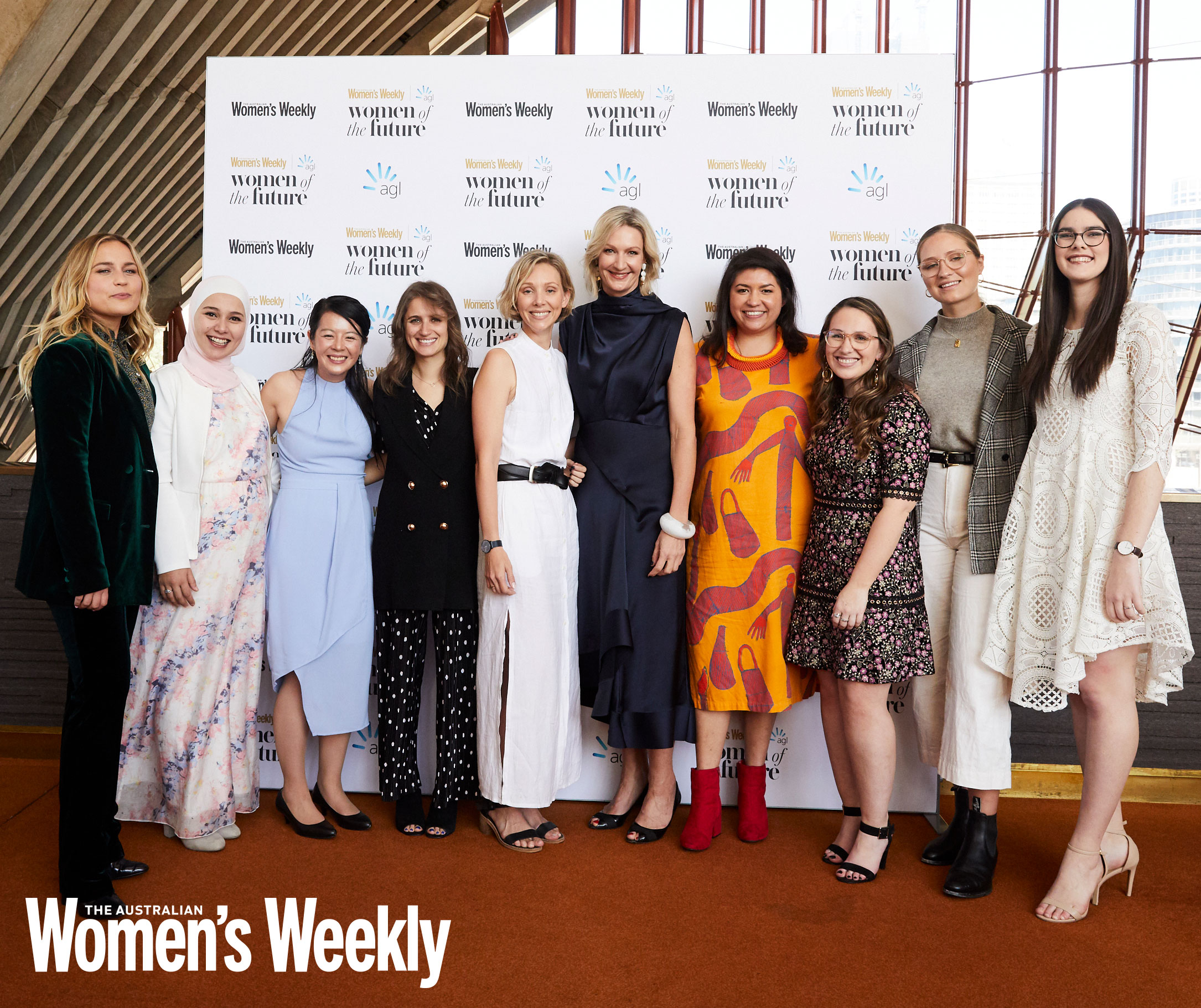
Editor-in-Chief Nicole Byers (centre) with all of last year’s finalists at the 2019 Women of the Future Awards Luncheon.
(Bauer Media.)“Which isn’t necessarily the case. But I think what it meant was to aim as high as you can. When I grew up, we didn’t really know many working women.”
The world has changed since then, and this year it is being forced to change again – fast. The pandemic has highlighted problems, such as how intermittent some women’s jobs are, and the effect that has on their economic future. But Amanda says it has also created opportunities for improvement.
“It’s shown that the work environment can be flexible. You can work from home. You can avoid the daily commute. You can find hours that suit you better, because we’ve shown it can happen.”
“I think that will make a big difference. The kind of stuff that will evolve in the future is making it easier for women to leave the workforce and then come back again.”
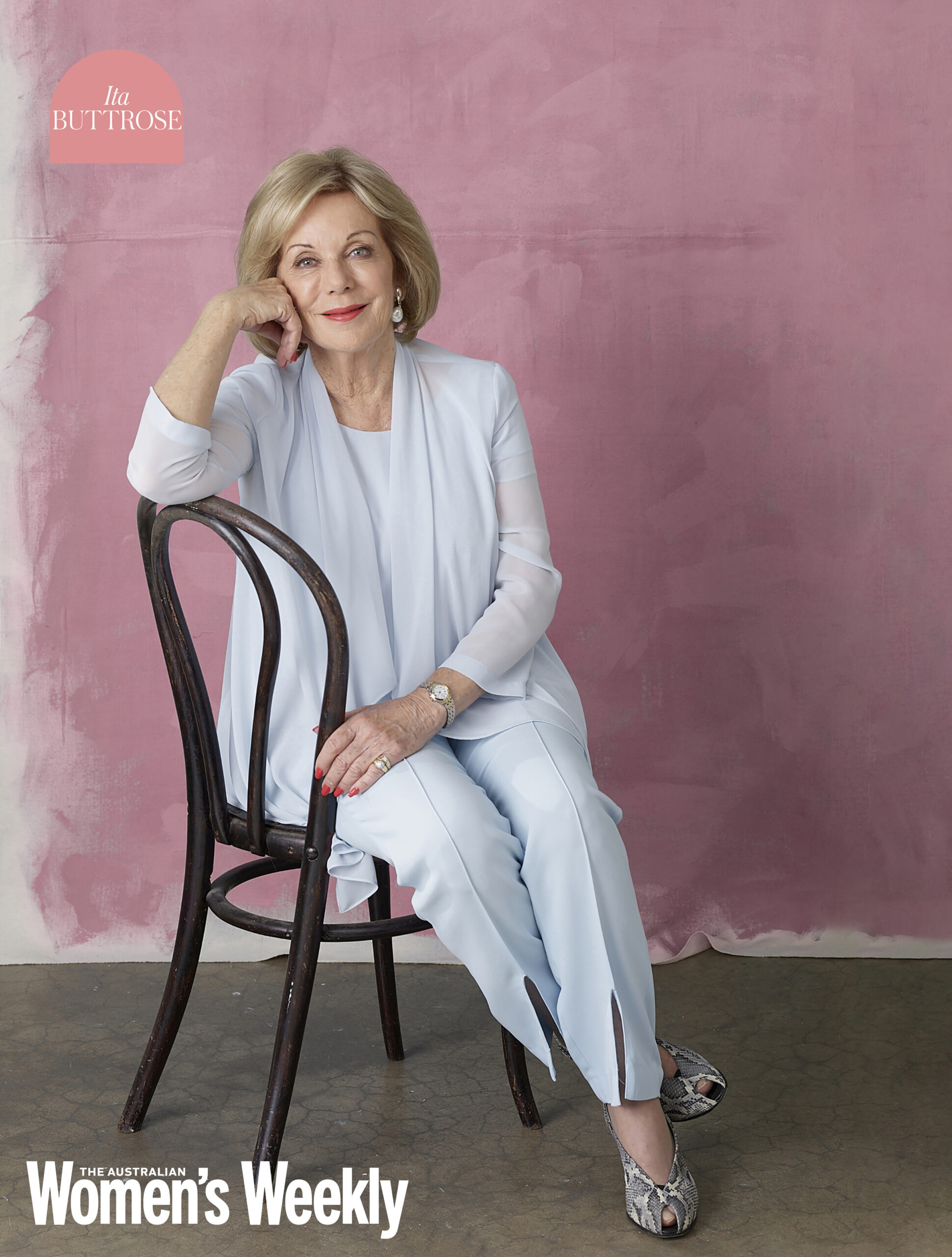
Ita Buttrose is an Australian legend who helped build Australia’s magazine industry and nurtured The Weekly into the modern Aussie era. Ita represents the legacy a great career of sticking to your guns leaves you with.
(Photography: Corrie Bond. Styling: Mattie Cronan.)Ita Buttrose, journalist, author and Chair of the ABC
When Ita Buttrose AC, OBE was 11, her mother returned to work in public relations at a time when few mothers were in the workforce, opening Ita’s eyes to the possibility of being both a family woman and career woman. Women were advancing and workplaces were changing.
“[Mum] always said that with a little determination, what many thought was impossible was usually possible,” Ita says.
Now women and men are being sent back to their homes in what may mark another evolution of work – one that Ita says she hopes will prove lasting.
“Rigid workplace structures have changed, forever I hope, and because in some households both parents have been working from home, there has been a better sharing of childcare,” she says.
“Companies that have never opted for flexibility have had to embrace working from home and have discovered employees still deliver while working this way.”
WATCH BELOW: Judge Ita Buttrose speaks on the challenges she’s faced in her career. Articles continues below.
At the same time as this shift in workplace culture has made employers more open to doing things differently, female leaders around the world have had a chance to shine.
“Hillary Clinton suggested women feel more empathy and I think that’s true, we do,” says Ita. “In a world that’s so uncertain, I believe leaders need to establish an emotional relationship – a connection – with the people they lead.”
“Female leaders use language that expresses emotion and understand emotion in others. I expect the empathy of female leaders resonated with people.
“I used to tell my daughter no one else was exactly like her. She was a one and only and that made her a very special person, so don’t compare yourself to others.”
“You are your own person. Don’t let people talk you out of your dreams. Deep in our hearts, we all have dreams. They are yours alone. Don’t be afraid to go after them.”
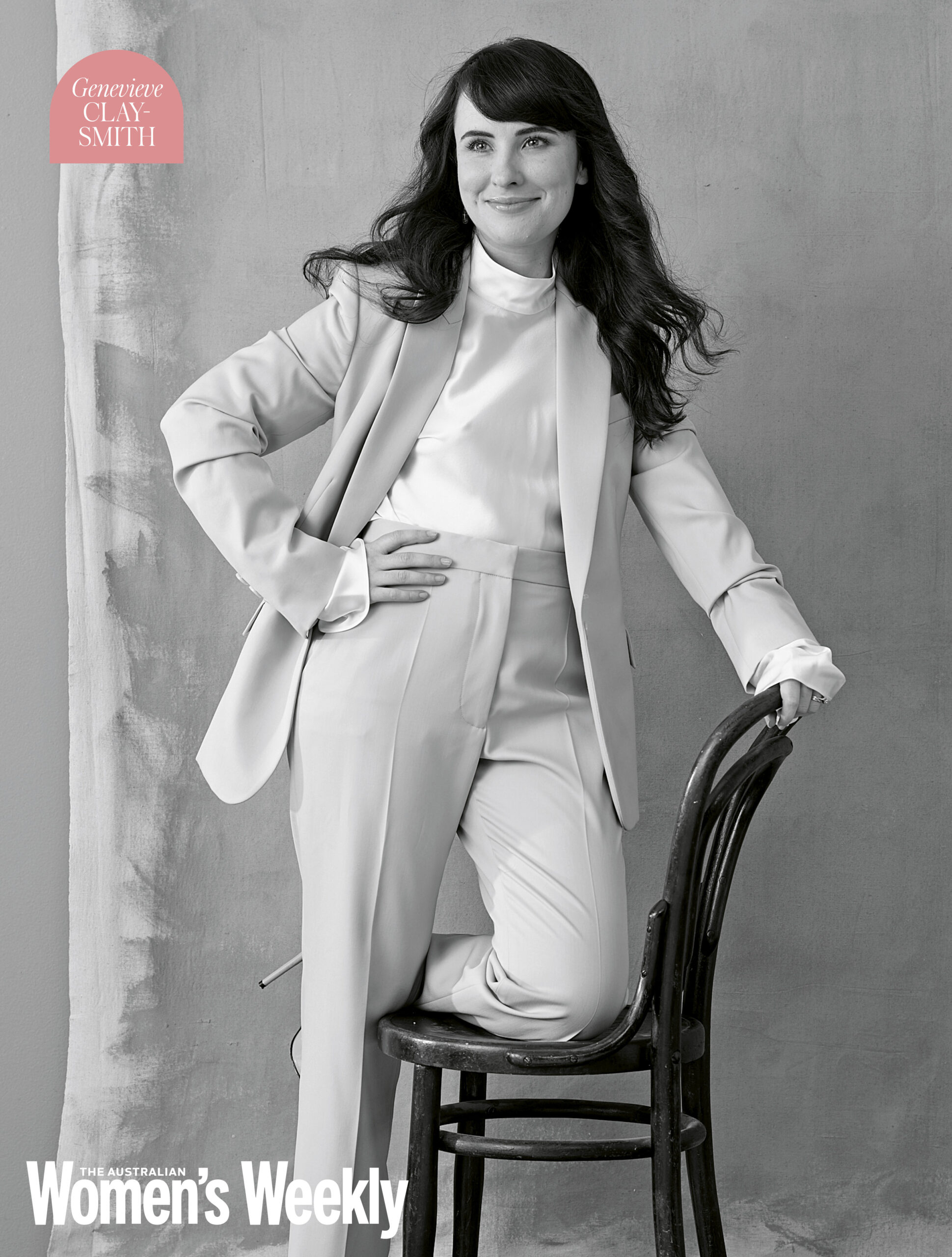
Genevieve Clay-Smith won the Women of the Future Awards in 2015 for the work as co-founder of Bus Stop Films. She is uniquely positioned to be able to examine the finalists from both sides of the competition, and who will benefit most.
(Photography: Corrie Bond. Styling: Mattie Cronan.)Genevieve Clay-Smith, executive director and co-founder of Bus Stop Films and co-founder of Taste Creative
More than a decade after Genevieve Clay-Smith’s powerful film Be My Brother won the Tropfest short film festival, her work has garnered acclaim and helped change the way the screen industry as a whole approaches inclusive filmmaking.
Genevieve’s work raises the profile of people living with disabilities and offers a platform for marginalised voices. But, as she explains, she faced a lot of resistance when she was first trying to get her production company, Bus Stop Films, off the ground.
“I found a lot of people in the corporate and philanthropic community didn’t quite get the importance of Bus Stop,” Genevieve says. She credits businesswoman Ann Sherry AO with helping her find the confidence to fight her corner.
“She taught me to back myself and believe in the work I was doing. I don’t think Bus Stop would be where it is today if it wasn’t for Ann’s fervent and unwavering support,” says Genevieve. “She connected me to people who I ended up doing business with and who became donors.”
Genevieve returns to the judging panel for a second year after winning the competition in 2015. Years of banging on doors to realise her vision have taught her that faith in herself is crucial to success.
“Defy self-doubt by deliberately taking action against it. Put your artwork online. Ask your boss for a meeting. Enrol in the online course. Don’t do it for any other reason than because you want to do it. Don’t let self-doubt win. Take action for no other reason than to grow yourself.”
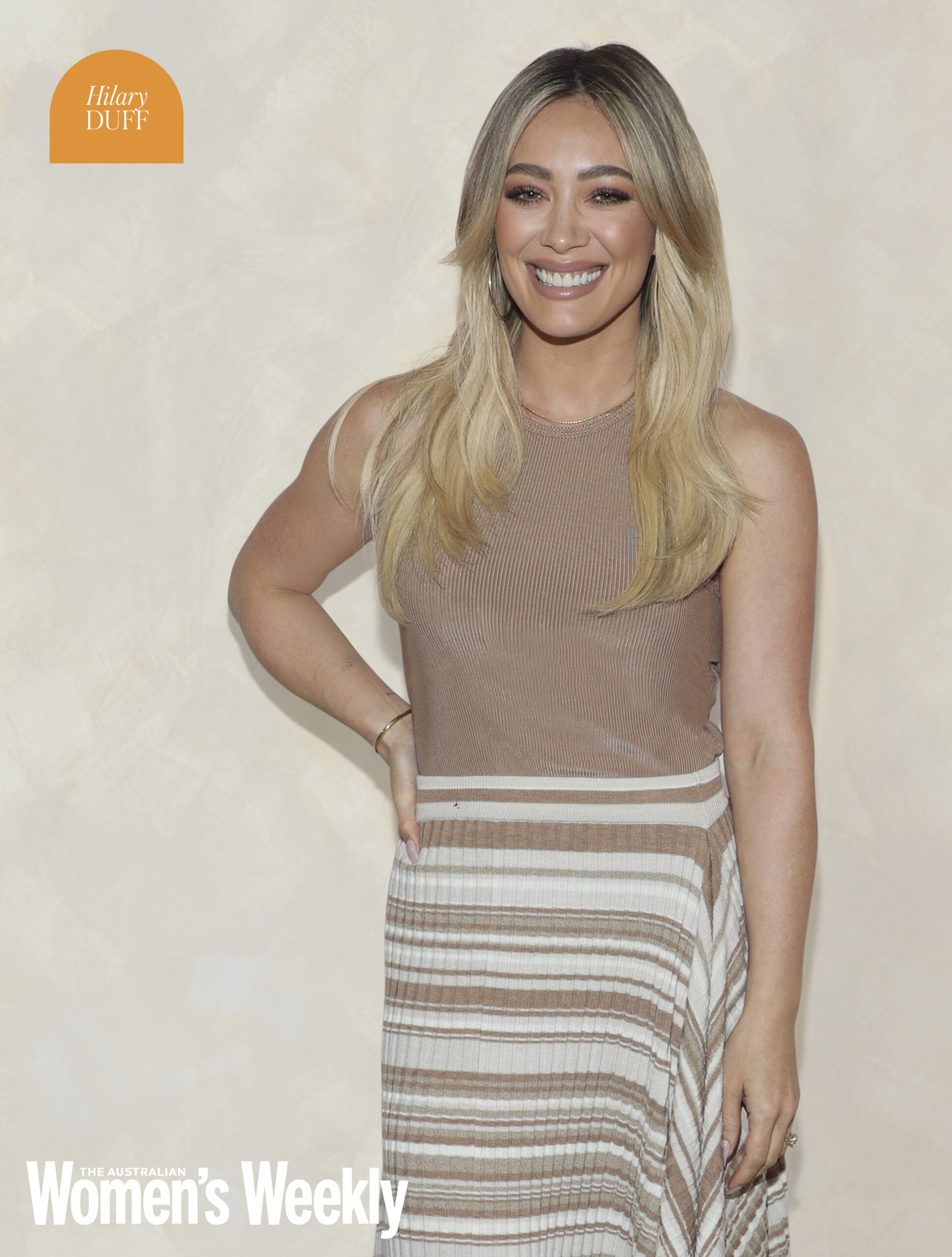
Hilary Duff, actress, singer, businesswoman, producer, author and Chief Brand Officer for Veeda feminine care products
Hilary is not only a globally-recognised actress and singer, but also a businesswoman, writer and devoted mother-of-two.
Despite her many successes, she remains engaged with issues that matter to her, and she’s candid when asked about the experiences that shaped her, revealing the quiet determination that drives her.
“I didn’t have a mentor growing up, but I had my mother, who was extremely loving and supportive but also hard on me,” Hilary says.
“She believed that if you work hard enough, your dreams and passions can become a reality, and she instilled that in me.”
WATCH BELOW: Meet Genevieve Clay-Smith, co-founder of Bus Stop Films, which won her the Women of the Future award back in 2015. Article continues below.
Succeeding in Hollywood is hard graft, but the process is character building. “You have to keep your head up, you have to keep studying your craft and believing that you’re going to hear ‘Yes’ eventually,” says Hilary.
“I’m honoured to be sitting where I sit, but I still want more and I still find myself in situations where I look around and feel completely out of place.”
Hilary joined this year’s judging panel to help dreams come true. “There are so many hard-working women out there, and finding the opportunity is more than half the battle.
Women supporting other women, holding each other up and seeing a future where females are truly viewed as equal, hired as equal and paid as equal is a future we need to work towards. This campaign is a really beautiful part of that.”
For more information about our Women of the Future competition, including how to submit, click here.
Read more about our judges in the October issue of The Australian Women’s Weekly, on sale now.
